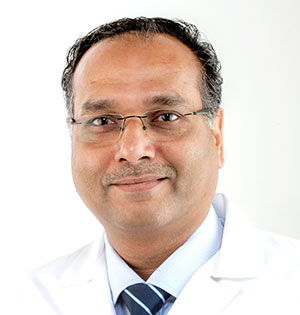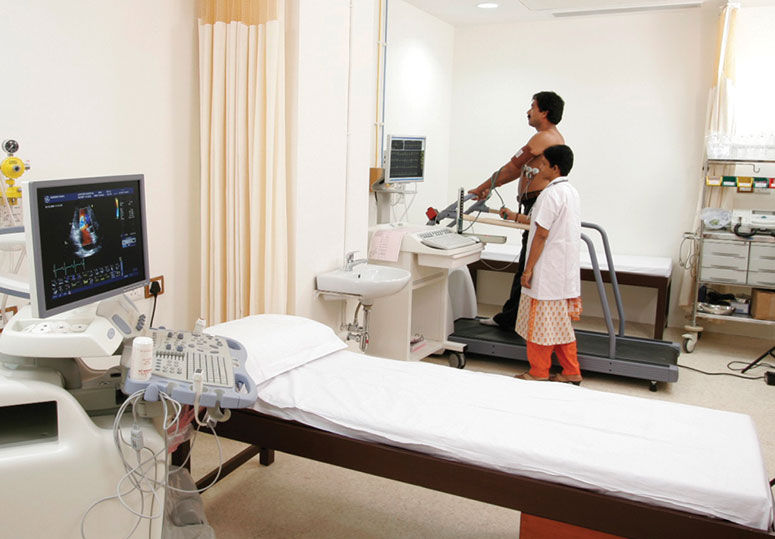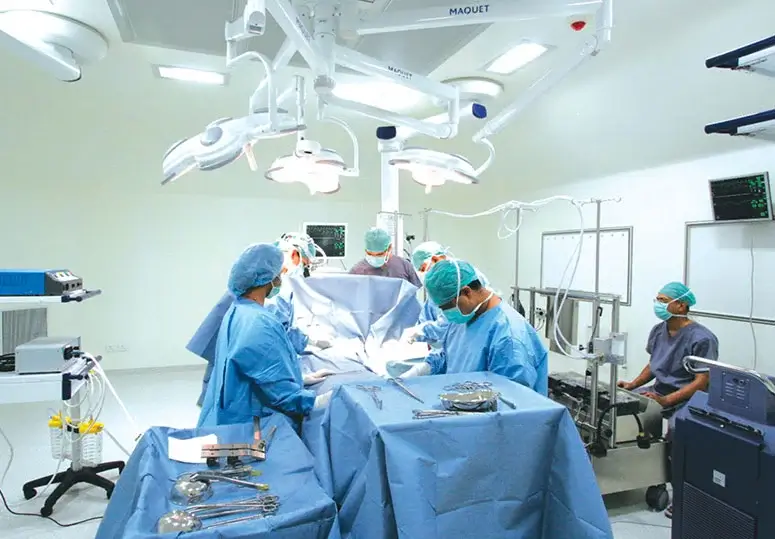Cardiac Surgery in Indore
Expert Care for Complex Heart Conditions: Your Journey to a Healthier and Stronger Heart
In our Cardiac Surgery Hospital in Indore, we are wholeheartedly committed to delivering cardiac surgery treatment infused with warmth and care. We employ the necessary technology and techniques to ensure our healthcare meets the right standards in every way. Our Cardiac Surgery Department comprises a team of distinguished experts, including surgeons, cardiologists, cardiac anesthesiologists, and intensive care specialists. Their collaborative efforts ensure the development of optimal treatment plans for our valued patients.
- Exceptional Patient-Centred Amenities: We take great pride in our distinction as the region's inaugural institution to earn NABH accreditation from the Quality Council of India. This esteemed accreditation underscores our unwavering dedication to excellence across all facets of our services, with a particular emphasis on prioritising patient-centred amenities.
- Patient-Centred Services: Driven by our philanthropic principles and unwavering belief in prioritising patients, we offer specialised healthcare packages that ensure the accessibility to our services. Our infrastructure is thoughtfully designed with your comfort in mind, featuring well-lit, spacious areas to enhance your healthcare experience and ensure your comfort.
- Comprehensive Care Under One Roof: From high-quality imaging and precise screenings to a wide range of treatment options, we provide an extensive array of cardiac care services, all conveniently located within a single facility. Our comprehensive program is meticulously crafted to effectively monitor, assess, and treat our patients.
- Essential Technology for Precision: We harness the capabilities of technology to consistently deliver results that meet international standards. Further, we ensure the highest levels of precision and accuracy, enabling us to proficiently handle even the most complex cases.
- Electronic Medical Records (EMR): To simplify the management of your healthcare, we offer electronic medical record facilities. This empowers both doctors and patients with anytime, anywhere access to medical records, ensuring seamless continuity of care and effortless access to vital information.
- Hygiene and Sanitation Standards: Our dedication to promoting optimal recovery extends to upholding the most stringent benchmarks for hygiene and sanitation. Our Central Sterile Supply Department (CSSD) is meticulously managed and our operation theatres are equipped with laminar airflow facilities to maintain excellent air quality. These measures safeguard the safety and well-being of our patients during surgical procedures.
Team
Looking for the Cardiac Surgeon in Indore
The Cardiac Surgery treatment in Indore at Jupiter Hospital is helmed by a dedicated team of specialists who excel in complex procedures, such as bypass surgery. Bypass surgery is a crucial intervention aimed at reinstating the normal flow of blood throughout the body by creating bypasses for clogged or damaged arteries. Our commitment lies in utilising modern facilities and treatment methods to provide a seamless experience for our patients at every phase, from preoperative preparations to peri-operative care and post-operative recovery.
Comprehending Bypass Surgery
Heart bypass surgery, medically referred to as Coronary Artery Bypass Graft (CABG), is a sophisticated procedure conducted to address either fully or partially obstructed arteries. The primary objective is to reroute blood flow by establishing a bypass using a healthy blood vessel sourced from the patient's leg or arm. It is essential to understand that while CABG doesn't address the root cause of artery blockage, it plays a pivotal role in alleviating symptoms, enhancing heart function, and reducing the risks of cardiac arrest and heart failure.
Understanding Why Bypass Surgery is Recommended
Bypass surgery is considered for patients facing specific cardiac conditions, including:
- Severe Angina (Chest Pain): This procedure is frequently advised for individuals experiencing severe chest pain due to narrowed arteries.
- Multiple Damaged Arteries and Dysfunctional Left Ventricle: When two or more arteries are compromised, and the left ventricle of the heart is not functioning optimally, bypass surgery often turns out to be a viable choice.
- Severely Diseased or Blocked Left Main Coronary Artery: For patients with a severely diseased or blocked left main coronary artery, bypass surgery can offer a helpful solution.
- Stenotic Arteries Unsuitable for Angioplasty and Stent Placement: In situations where arteries are excessively narrow or stenotic for straightforward angioplasty and stent placement, bypass surgery may present the most effective approach.
Understanding Different Bypass Surgery Techniques
Bypass surgery encompasses different techniques tailored to individual needs. There are three primary methods as listed below:
- Conventional Bypass Surgery: This approach adheres to the traditional open-heart method wherein there is an usage of a heart-lung machine.
- Off-Pump Bypass Surgery: Off-pump bypass surgery is performed without the heart-lung bypass machine. Instead, special equipment is employed to stabilise the heart during the procedure.
- Minimally Invasive Bypass Surgery: Minimally invasive bypass surgery utilises robotics and video imaging technology through small keyhole incisions on the patient's chest.
Benefits Experienced Post-Bypass Surgery
Bypass surgery offers a multitude of health advantages, which include:
- Alleviation of chest pain and discomfort
- Restoration of a normal, active lifestyle
- Reduced risks of cardiac arrest and heart failure
- Improved survival rates
These benefits showcase the significance of bypass surgery and how valuable it is an option for individuals with specific cardiac conditions.
Our Cardiac Surgery hospital in Indore provides necessary care for patients battling heart failure. Our facility offers contemporary resources and treatment methodologies, all complemented by the expertise of our dedicated specialists.
Understanding Heart Failure
Heart failure, also known as congestive heart failure, is a condition characterised by the heart's inability to pump blood efficiently. This condition may result from various underlying heart issues, such as coronary artery disease, high blood pressure, damaged heart valves, cardiomyopathy, myocarditis, arrhythmia, or congenital heart defects.
Diagnosis of Heart Failure
The diagnosis of heart failure is a comprehensive process that entails a thorough physical examination along with a series of screenings and tests. These evaluations and assessments may include:
- Blood tests
- Chest X-rays
- Electrocardiogram (ECG)
- Echocardiogram
- Stress test
- Coronary angiography
- Coronary angiogram
- Myocardial biopsy
- Magnetic resonance imaging (MRI) scan
- Cardiac computerised tomography (CT) scan
These tests are instrumental in enabling healthcare professionals to accurately diagnose heart failure and create tailored treatment plans to meet the specific needs of each patient.
Possible Treatment Options for Heart Failure
Effective management of congestive heart failure can be done via a variety of treatment options, which are:
- Coronary Bypass Surgery: Performed to treat severely blocked coronary arteries, the objective of this method is to restore normal blood flow. It creates a bypass using a healthy blood vessel obtained from the patient's arm, leg, or chest.
- Heart Valve Repair or Replacement: Surgical intervention plays a pivotal role in mending or substituting diseased or damaged heart valves. The choice between traditional open-heart surgery and less invasive techniques is determined by the patient's preference and a comprehensive medical evaluation.
- Implantable Cardioverter-Defibrillators (ICDs): ICDs are electronic devices that are surgically placed beneath the skin within the chest cavity. Their purpose is to produce electric pulses, which help in managing irregular heartbeats in patients with arrhythmia.
- Ventricular Assist Devices (VADs): VADs, sometimes known as mechanical circulatory support devices, are mechanical pumps that are surgically inserted into the abdominal or chest cavity. These devices aid the heart in the efficient pumping of blood and are an excellent choice for patients awaiting a heart transplant.
- Heart Transplant: A heart transplant may become the only solution in cases where patients suffer from severe heart failure unresponsive to alternative treatments. This surgical procedure entails the replacement of a damaged or non-functioning heart with a healthy one procured from a deceased donor.
Our highly skilled healthcare team offers individualised Cardiac Surgery treatment, ensuring vital personalised care for patients dealing with heart failure.
Delving into Minimal Access Surgeries
Minimal access surgeries encompass a spectrum of minimally invasive surgical procedures performed through tiny incisions. These essential techniques leverage specialised imaging technology and robotic methods to enhance precision and minimise the invasiveness of surgery. We offer access to minimal access procedures as an integral component of our comprehensive Cardiac Surgery treatment in Indore.
Reasons to Opt for Minimal Access Heart Surgery
Minimal access heart surgeries are selected for various medical reasons, which include:
- Mitral valve repair or replacement
- Tricuspid valve repair or replacement
- Aortic valve repair or replacement
- Atrial septal defect repair
- Atrioventricular septal defect correction
- Coronary artery bypass surgery
- MAZE procedure for atrial fibrillation
- Ventricular assist device placement
Benefits of Minimally Invasive Heart Surgery
Minimally invasive heart surgery provides several benefits, which include:
- Reduced intraoperative blood loss
- Lower postoperative infection risk
- Alleviation of post-surgical trauma and discomfort
- Faster recovery times, allowing patients to return to their daily routines sooner
- Minimal scarring, improving the cosmetic outcome, patient comfort and healing process
Opting for minimally invasive heart surgery allows patients to enjoy these advantages while effectively treating various cardiac conditions.
Patients Speak
Hear the heartwarming stories of patients overcoming difficult afflictions
















 View Map
View Map Book an Appointment
Book an Appointment Find a Doctor
Find a Doctor Health Check-up
Health Check-up













 Find a Doctor
Find a Doctor Health Checkup
Health Checkup Book an Appointment
Book an Appointment